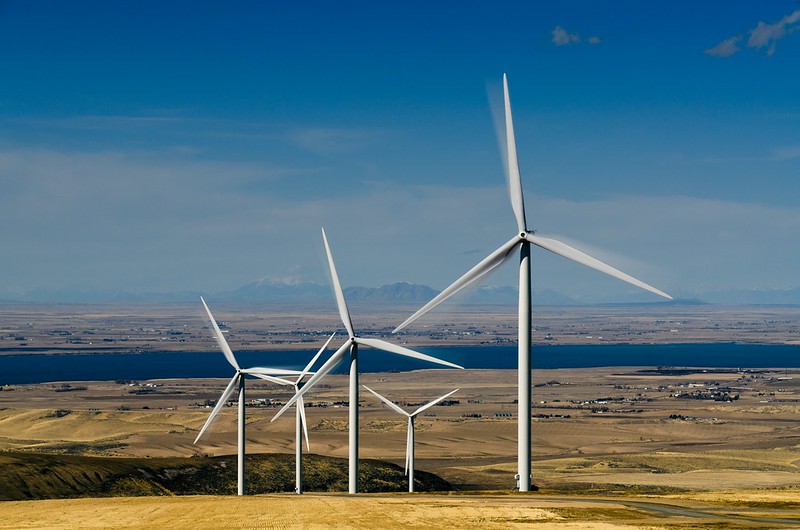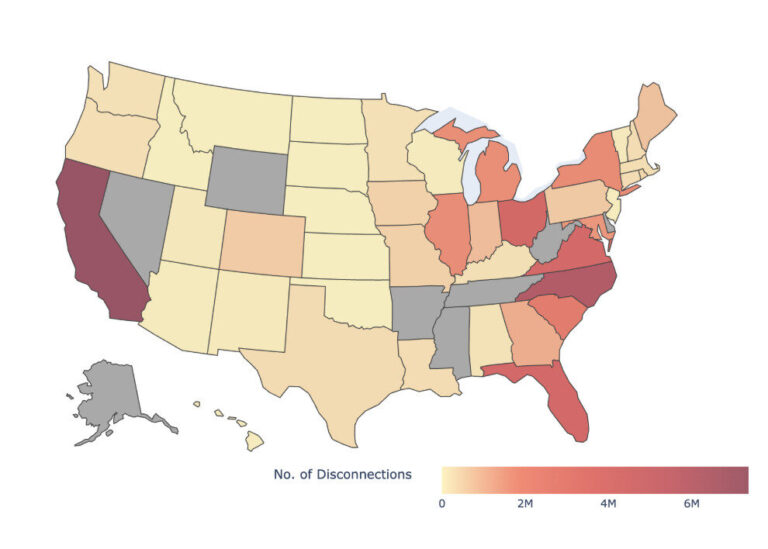Cascade Policy Institute: State Policy Network attacks on renewable energy in Oregon

Cascade Policy Institute: State Policy Network attacks on renewable energy in Oregon
The Cascade Policy Institute (CPI) is an Oregon-based member of the State Policy Network (SPN), a 50-state network of think tanks that is often at the forefront of political attacks on renewable energy projects, and is funded by the fossil fuel industry and right-wing donors.
In 2023, CPI assailed a draft Bureau of Ocean Energy Management (BOEM) proposal that identified potential areas for siting offshore wind farms off of Oregon’s coast to help meet the national clean energy goals established by the Biden administration. After a public listening session hosted by a state representative and a fishing industry trade association that had been critical of BOEM’s offshore wind plans, CPI’s fundraiser Joshua Schuette said on the institute’s blog and podcast that “locals made their point loud and clear: offshore wind farms are dangerous, unreliable, and ultimately, not worth the cost.”
“Turbines have a history of breaking after a short time, and they are rarely cleaned up well even on land,” Schuette also claimed, without supporting evidence.
In reality, wind turbines typically last for 20-25 years.
Also in 2023, CPI published a report, “Quantifying the Unreliability of Wind and Solar Power in the Northwest,” by Eric Fruits, an adjunct scholar for CPI who previously served as the institute’s Vice President of Research. Fruits is also a senior scholar for the International Center for Law & Economics, which received $500,000 in 2022 from Charles Koch’s Stand Together Trust. Koch is the billionaire CEO and chairman of the Koch Industries, a privately-owned company that refines and sells fossil fuels.
Fruits’ report attacked Oregon’s clean energy targets set by HB 2021, which requires electricity providers to reduce greenhouse gas emissions 80 percent by 2030, 90 percent by 2035 and 100 percent by 2040. Fruits called for power companies to be able to build new or expand existing power plants that burn methane gas, a fossil fuel and major source of the emissions that cause climate change, which is banned under the 2021 Oregon law.
CPI’s longtime president, John Charles, Jr., has referred to HB 2021 as a “fraud.” The think tank has long opposed renewable energy standards for electric utilities in Oregon, and has described renewable energy as “notoriously unreliable” in a state where fossil fuels account for less than a third of electricity generation.
CPI paid for Facebook ads in 2022 that predicted “progressive ‘renewable energy’ mandates” could lead to electricity shortages and “deadly blackouts” in the next year. Actual threats to Oregon’s electricity supply during that time included extreme heat fueled by climate change and a failure at the Jackson Prairie Underground Natural Gas Storage Facility in neighboring Washington that sparked an emergency along the 1,500-mile Northwest Pipeline.
During the early 2010s, CPI was one of a number of SPN think tanks that partnered with the Massachusetts-based Beacon Hill Institute on a series of reports used in a failed campaign to repeal renewable energy standards in states across the country. The CPI-Beacon Hill Institute report was paid for with a $30,000 grant from the Searle Freedom Trust, a conservative foundation known for funding right-wing groups that deny established science on climate change, a grant proposals document from SPN made public by The Guardian later revealed.
SPN’s grant proposal described the CRI-Beacon Hill report as “High quality, high impact,” but by 2016, Oregon lawmakers had doubled the state’s renewable energy standard from 25 percent to 50 percent by 2050.
Funding for CPI
CPI is registered with the IRS as a 501(c)3 organization, and describes its mission in annual tax reports as working to “research and develop public policy alternatives that foster individual liberty, personal responsibility and economic opportunity.”
Founded in 1991, CPI raised money for its “Better Government Competition” from utilities like Portland General Electric (PGE) and PacifiCorp during its early years.
Donors Trust provided $100,000 in funding to CPI in 2022. In earlier years, CPI received significant funding from the Donors Capital Fund, which along with Donors Trust has been described as “the favorite donor conduits of the Koch political network” by the Center for Media & Democracy.
Money contributed by SPN accounted for $129,500 of the nearly $1 million in revenue CPI reported to the IRS in 2022. Tracie Sharp, who is now the President and CEO of the national SPN, helped to launch CPI decades ago.
CPI has also hosted policy fellows and interns paid for by the Charles Koch Institute.
Staff and board ties to the fossil fuel industry
Fruits is described by CPI as a long-time academic advisor and contributing analyst. He was the think tank’s Vice President of Research from 2019-2023. Fruits also has a consulting firm, Economics International Corp.
In 2008, Fruits produced a report for EcoNorthwest, where he was a senior economist, that concluded that a pipeline project proposed by Oregon LNG would have no impact on residential property values. EcoNorthwest was retained by the project’s environmental consultant, the report said. Years earlier, he worked on the business mergers of major oil companies Exxon and Mobil, as well as BP and Arco.
Economist and consultant William B. Conerly is currently the chairman of CPI’s board of directors. Conerly began his career as a corporate economist for companies like PG&E, the California utility. During the 1980s, he worked as the Director of Economic Research for Nerco, which was involved in coal, oil and gas extraction.
CPI listed William Udy as its treasurer on its annual tax report to the IRS for 2022. Udy is a longtime member of CPI’s board and used to work as a financial analyst for NW Natural Gas, but is now retired.
Broader anti-clean energy and anti-science agenda
A rapid reduction in use of fossil fuels and electrification of the economy is now necessary to limit global warming to 1.5 or 2 degrees Celsius, according to climate scientists.
CPI has echoed messages from the American Gas Association while opposing bans on new gas hookups by local communities that want to encourage electrification, a key component of the transition to clean energy.
CPI also has a history of perpetuating climate science denial.
In 2004, Charles wrote a “Policy Note” on global warming for state legislators that was published by the Washington Policy Center, which is also a member of SPN. He claimed “no definitive causal link has ever been established” between human activities and global warming, and defended carbon dioxide emissions from burning fossil fuels as beneficial plant food.
In 2009, Todd Wynn, then the director of CPI’s Energy and Environment Center, directed and produced a 22-minute documentary, “Climate Chains.”
“I think that global warming could be a net benefit for the planet in fact,” Wynn said in the video.
Featured image: Nordex USA, courtesy U.S. Department of Energy.



